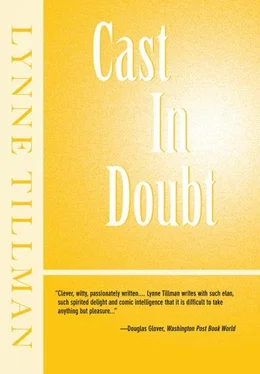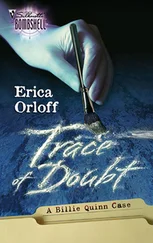I hand Yannis some drachmas and tell him to go buy something for himself, for the house, and to have a good time. With each sip of coffee, traces of last night’s debauch slide into view, as if my eyes were binoculars — no, not binoculars, what were those things that Mother had in which one put postcard slides? A stereopticon. Yes, it’s as if I were seeing portions of last night through that optic antique. Indeed I may be that optic antique, but just now, lying here and looking out at the harbor, which I can see even from my bed, I don’t mind. I remember more and more of the night’s debates and ludicrous Wallace. Did I dance with him or was it the Dutchwoman? I believe Roger and I even kissed good night. Was it Roger? Well, no matter. This is a day to embroider upon, but why should it feel so? A wonderful smell wafts in the air, aromatic yet not too sweet, redolent of youth, my youth of course, and youth must be served. I will visit Helen’s John today, I really think I will, after I have gotten some writing done. By meeting him I’ll sort things out, see what’s what.
I walk to the window and wave to Helen on her terrace; she waves back. She has no idea what I’m planning, of course, and I feel a bit like one of my furtive characters, a confidence man or a CIA agent investigating domestic matters, spying on oblivious American citizens.
My detective Stan Green always feels furtive, so keeping secrets comes naturally to him. Secrecy fits him like a glove. I make it fit him like that. Green’s girlfriends know nothing of the real world he inhabits, and his wife suffers silently and plots her revenge. I haven’t decided whether it will ever be enacted. In the book I’m writing now, the young, rich murderer, whom Green pursues, thinks, like Leopold and Loeb, that he has committed the perfect crime. This book is a thinly disguised attack on would-be geniuses like Roger, men who think they can get away with anything, murder included, because they’re so damned superior. I am smarter than most of them and will receive no recognition whatsoever for my acuity, in part because I don’t lord what I do know over lesser lights. How can one have a meeting of the minds with people whose minds are concocted more of ego than anything else? I thought I’d left that problem behind in Cambridge and New York, but it surfaces here often, even in this obscure part of the world.
When Roger first arrived, I thought, he’s a good man, we can talk. We shared Faulkner, Forster, Joyce, Firbank, of course, and Plato, and even some obscure English writers he and I both knew and loved. He doesn’t appreciate Gertrude Stein the way I do, and that was perhaps our first great disagreement. Her Making of Americans , I believe, is a masterpiece, and she is the godmother of Household Gods, so to speak. A vast subject. I can’t bear to think about it just now.
As the years passed, Roger’s peculiarities emerged. He has a strange expression these days, his face having set a bit — he’s ten years younger than I, I think. He never troubles to look one straight in the eye. He has the disconcerting habit of peering at one through half-closed eyes, as if one were under suspicion of a great crime. There is something sinister in him, something that I cannot quite comprehend, but sense. It is as if his suspicions of others were only the reflections of his own dubious nature. I don’t mean to dramatize, but one doesn’t ever know what to expect from Roger, especially because he appears so pulled together and chipper, so in control.
One worsens with age; at the least our failings graduate with us, with age, and some become exaggerated. I’m sure I have gotten worse, although the truth is I’m not sure in just which ways. I’d never admit my failings to others. Obviously I drink too much and lose patience quickly and can be petulant. There’s no one here I trust enough for the kind of dissection I ought to undergo. I almost trust Alicia enough, almost, but her secretiveness produces greater discretion on my part than I truly care to employ. I would like to reveal myself more fully to her. There’s Gwen in Manhattan, though it’s been ages since I’ve seen her. An extraordinary, singular person.
Gwen is from a lower-middle-class black family in Queens, New York. She attended Radcliffe on scholarship, which is where I met her, in Cambridge in the fifties, years after I was graduated from Harvard. Actually she is now close to the age I was when I met her. Gwen is never without something clever to say. It is, as she once said, her best defense, and then in the next breath she went on to dub herself Manhattan’s double entendre. That indeed does suit her, as it begins to define her complex nature. To me she’s the black Dorothy Parker, as she is a great wit, a talented writer of stories and screenplays, does editorial work for a living, and turns out the occasional review or essay when she can rouse herself to it. She drinks and is extremely critical and, even more, is a cynic like Parker and has, like her as well, a penchant for gay men, such as myself, not that she was ever in love with me. I do, did trust her, even though she can be an outrageous gossip, but it’s true to say that, with her, minds do meet. It’s been too long since we last were together. That must be remedied. I’ll write her and invite her here. I’ll offer to pay her way. Yes. I really need to see her.
I find it easier to arrive at my typewriter if first I plan a simple task, such as writing a long-overdue letter. Even paying a bill sometimes unlocks the door to creativity. It’s odd what helps, because the activity is so odd in itself. Dearest Gwen, I write, and so on, and will you come, and so on, and be my guest, and so on, and then I use some of what I’ve written about the sky and the sea, and ask her to join my sunbathing club, and so on. I’m as excited as a pup. Gwen is not in any way doglike or puplike. She is an original, a rare bird, a tan, lithe creature. The color of coffee ice cream, she has said, not brown sugar, a locution that offended her in part because it derived from a song sung by wimpy English boys, as she put it in a letter. She’s writing a screenplay called Dark Angels, whose title comes from a postcard Gwen found in the south. It shows three young black boys in a pastoral setting. At the bottom of the card, which she once showed me, there is a motto: Dark Angels. She hasn’t yet let me see the script.
Gwen is canny as a con man, an art historian gifted with the touch of a grifter. Her postgraduate work was in art history. Will Gwen like Helen? Might they not fall in love, for one Greek moment? But Gwen isn’t really drawn to women. I should probably hate their becoming lovers. I should hate it also if she got on with Roger, and so I immediately amend my letter to include a shovelful of dirt aimed his way. I believe Gwen knew Stephen the Hermit; but he’s so rarely in sight these days, I needn’t mention him. And Duncan is back in England, falling in love over and over, I suppose. God, what if she liked South African Wallace, and what if she went to bed with him, just to spite me; but I will not put one more negative comment in this letter, as I want her to visit me. I ought not put her off by portraying a scene filled with lunatics and failures. I give the letter to Yannis to mail immediately, express. It will reach her in no time. I will also telephone her. That will speed her to me.
The clippings Gwen mails me are like aspects of her, small pieces of her. André Malraux’s book Lazarus sounds interesting. A meditation on death, the review says; I suppose Gwen has read it already. She keeps up with everything, and the subject of death fits her mordant humor, as it does mine. I see that a Dr. Christiaan Barnard has done a twin-heart operation. There’s a CIA file on Eartha Kitt, of all people, because she yelled at LBJ’s wife at a dinner party in 1968. She yelled about our boys’ being sent to be murdered. Good for her. I would have liked to have been there.
Читать дальше












